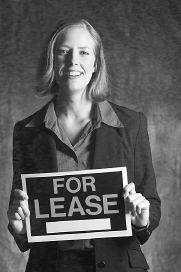Buy to Let

Be a Property Developer
"Buy to let" involves you purchasing a property and then renting it to someone else.
Main Advantages
Buy to Let is a way of investing your money, building up a regular income and/or creating an asset to draw on in the future. You can choose to live in one area, which is ideal for 'living', but buy or develop in another area which is more suitable for your purchase or development objectives.
Buy to Let can be considered an alternative or complement to other investment strategies, such as funds, equities, bonds or other saving schemes. However, compared with those other investment strategies, you have much more control and involvement in the development of the investment.
Buy to let can also be a good option for occupations such as clergy, who often live in residences provided by their church. It may not involve any cost, or perhaps even provide a net income, as the mortgage on the property can sometimes be covered by the rent. This also provides the clergy with accommodation and/or an asset that can be used in retirement.
Main Disadvantages
Although you don't live in the property, you still have responsibility for its upkeep. You may have to deal with problems that occur with the property, or even with the tenant (such as payment problems or, in the worst case, court eviction proceedings).
Property management agencies can take a lot of that work from you, in return for a management fee. An alternative is that, if you have a block of properties, you may be able to find a caretaker who will run things on a day to day basis in exchange for free or cheap accommodation. This would enable you to avoid getting involved in most of the work of a landlord.
Case study
Peter is a married vicar who lives with his family in a house provided by the church. He and his wife have bought a small cottage, in a popular holiday area, that they rent out through an holiday agent. The rentals throughout the year pay for the mortgage, the agents fees, and other costs, and there is a little bit left over, which they save.
When Peter retires, he and his wife hope to move to the cottage. However, if they change their minds and decide to live somewhere else, they can sell the cottage and use the funds for another house.
Where do you live?
When you become a property developer you might live in one of your own houses. However, some property developers live in properties that they rent from someone else. This might be because the area where they live is too expensive to buy, or their normal work may involve frequent moves of residence. Depending on the how the levels of rental income vary by area, and the sizes of property involved, it can be more cost-effective to rent your own property whilst being an owner and developer of other properties than to simply be an owner-occupier of one property.
©2013 Team Technology. Privacy policy and cookies.

